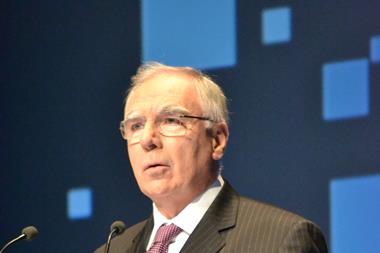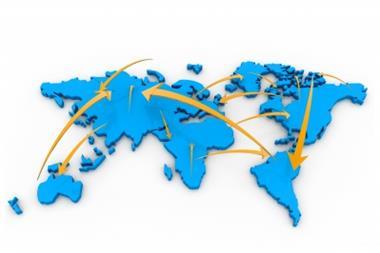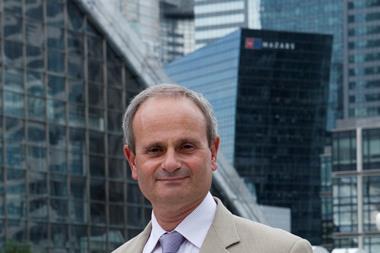StrategicRISK spoke to Gilbert Canameras, Président de l’Amrae, just before the start of this year’s conference to find out what the risk and insurance community in France can expect in Deauville…
What can delegates look forward to at this year’s Amrae Conference?
When I became president I had three fixed objectives: 1) To make members the core concern of Amrae; 2) To extend the notion of risk management to mid-cap companies; and 3) To extend to the view of risk managers to cover international perspectives and practices.
It is this last theme which forms the central focus of this year’s conference, which will look at how companies can best develop the means to operate on a global basis and also to consider the risks which are associated with this.
Companies exist to take risks and we consider that risk managers are there to help businesses mitigate those risks so they can develop and grow.
Operating business on an international basis brings a concentration of risks and risk managers often need to consider more risks than they might otherwise in their own country and we will be looking at some of these.
We are operating in a much more globalised world. International business is now much more than just exporting things into countries: parts can be produced in several different countries and assembled in another.
We will be looking at the various risks and opportunities associated with globalisation, seen from mature countries and also when analysed by emerging nations.
Risk managers and businesses have to deal with a complex combination of macro problems and micro ones, including the development of data systems, adverse weather conditions, political risk, supply chain risk and cyber dangers. We have structured the event around these themes and that is what makes this year’s conference s so interesting for me.
Last year’s event took place in Lyon – but we are back in Deauville for 2014. Why is this?
We deliberately chose Lyon last year so that we could focus the event on explaining that risk management is also relevant to mid-market businesses. Lyon is the home of many such businesses and we did attract a large number of them to the event, so it was a big success for Amrae from that perspective.
We have returned to Deauville for 2014, but next year we will go to another city. Obviously it is important when staging these events to ensure that we find a venue which is large enough to accommodate the many people who attend and this is a key consideration as we are attracting more and more people each year.
Amrae is well integrated into French business, both traditional ones and also those in the Cac-40. Our membership is now more than 900.
What are the biggest issues facing risk managers in France at the moment?
Political risk is a major threat – not only in the classical sense but also in terms of the potential for civil unrest. The worst of the financial crisis might now be over but its legacy is increased political risk. We are seeing this both in Europe and also in emerging countries as they start to become more wealthy and powerful.
We are also seeing escalating tensions developing among neighbouring countries, such as the show of strength between China and Japan. This certainly has the potential to create some serious political risk for emerging countries and beyond.
In Europe we have not quite finished with the economic crisis and fiscal instability remains – this can cause problems for foreign investors.
There are many facets to cyber risk but Big Data is clearly a danger to companies, expecially as firms are seeking new information tools to help them with globalisation.
Supply chain continues to remain a major threat and weakness and vulnerabilities exist for a number of reasons, as a consequence of political risks, for example.
How is the insurance industry tackling these risks?
That is a good question. The insurance industry will always say it is able to provide insurance protection for companies but the reality is that this is sometimes not the case. Often it is due to delays between the emergence of a particular risk and the development of the right insurance product. Now insurers are getting better at innovating and anticipating the needs of businesses. The industry understands that we are moving in an ever-changing world.
There is also much more dialogue between risk managers and insurers and, while delays are shorter, they continue to exist.
You have been Amrae President for several years now, what is so special about the organisation?
Amrae has become more and more important as an organisation as its numbers grow. This means that we are not only more professional but also more creative.
To illustrate this, Amrae is the first national association to have set up and implemented a body of knowledge for the profession – the risk management framework – and we are very proud of that. I think this framework will also make a very positive contribution to Ferma’s certification target. We have been particularly encouraged by the reception for this body of knowledge and it means that we are now able to explain what we are doing and why it is so important for businesses to establish risk management within a company.
We have also succeeded in holding discussions with the French authorities regarding mandatory coverage for first time in 10 years.
Amrae is now a very strong organisation which is both active and responsive. We are focused on the scientific, on lobbying and networking and we pride ourselves on remaining a friendly and approachable organisation.




















No comments yet